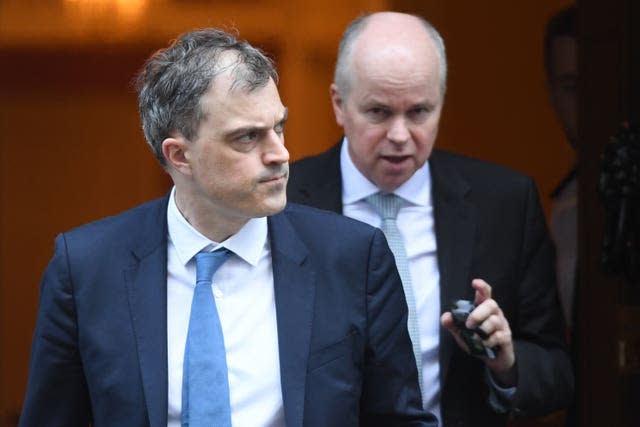Labour claims abuse of power in letter to BBC bosses
Labour has written to BBC bosses demanding they tell Sir Robbie Gibb to resign amid allegations that he tried to block a senior editorial appointment on political grounds.
The Financial Times reported that Sir Robbie, a former communications director for Theresa May who became a non-executive director at the corporation in May, attempted to stop former HuffPost UK editor Jess Brammar from being appointed to a key editorial role.

It was reported this was on political grounds as he felt it would damage trust with the Government.
The BBC said on Saturday that “no recruitment process has been blocked”.
But Labour’s deputy leader Angela Rayner wrote to BBC chair Richard Sharp and director-general Tim Davie to call for the resignation of Sir Robbie from the BBC board.

Ms Rayner said the claims go “to the core of both operational and governance matters for the BBC”.
Her letter said: “Putting pressure on the recruitment process of staff is entirely outside of the remit of the board and a total abuse of position.”
However a BBC spokesman said “as a general principle, board members are able to discuss issues with other board members or senior executives”.
Ms Rayner’s letter said: “I cannot believe that a BBC board chair could ever allow a director to act in this way and stay in post. I hope, therefore, that Robbie Gibb’s actions were news to you.
“I expect that you will now ask him to resign his position and investigate how this happened.”
She also called for the release of minutes and other correspondence relating to Sir Robbie’s appointment, and for an explanation over whether his links to the Conservative Party were properly taken into consideration.
She said: “Non-executive directors are supposed to be committed to delivering the mission of the BBC, not wielding political influence or lobbying on behalf of the Government on staff appointments.”

Sir Robbie did not respond to requests for comment on Saturday but The Independent newspaper said he had referred the outlet to the BBC’s statement on the matter.
A BBC spokesperson said: “We will respond to the letter in due course. As the BBC has set out, we do not comment on ongoing recruitment processes – which are the responsibility of the executive.
“For absolute clarity, no recruitment process has been blocked.
“The responsibility for staff appointments rests with the executive, not the BBC board. Board members are able to discuss issues with other board members; they are also able to raise issues with senior executives.
“It is essential that board members can debate and discuss issues. They have an absolute right to do so and it is fully consistent with having a unitary board. What individual board members can’t do is make decisions which are for the executive. That hasn’t happened. Good governance principles were adhered to.
“As we have clearly stated, the outcome of this specific recruitment process will be announced in due course.
“The letter raises a number of issues around Robbie Gibb’s appointment to the BBC board. Non-executive members for the nations (such as Robbie Gibb) are appointed by order-in-council on the recommendation of the UK Government, not the BBC’s nominations committee.
“Robbie Gibb has no role advising the Government and he stepped down from the Government’s PSB (public service broadcasting) panel when he took up the role at the BBC.”


